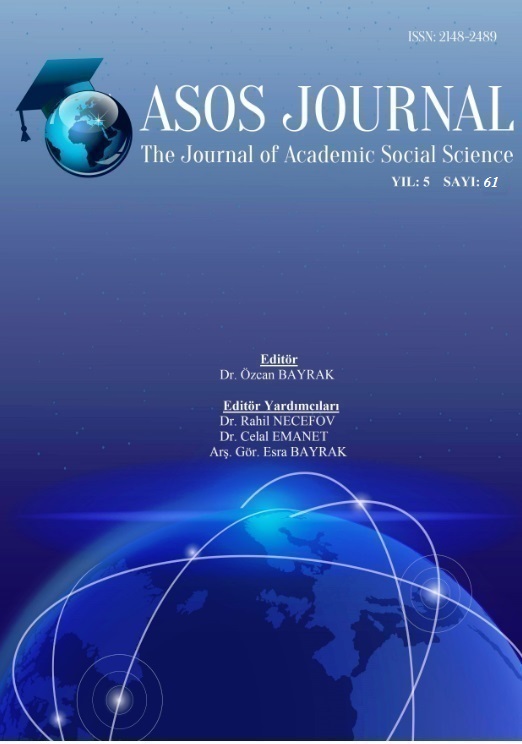Author :
Abstract
Bu çalışmanın amacı üniversite öğrencilerinin bireysel yenilikçilik düzeylerini değerlendirerek bireysel yenilikçilik düzeylerinin demografik değişkenlere göre farklılaşıp farklılaşmadığını tespit etmektir. Bu amaç doğrultusunda 2017-2018 öğretim yılı içerisinde Bartın Üniversitesi Meslek Yüksekokulu (BMYO) ve Bülent Ecevit Üniversitesi Zonguldak Meslek Yüksekokulu (ZMYO)’nda öğrenim gören öğrencilere yönelik anket yöntemi kullanılarak bir araştırma gerçekleştirilmiştir. Araştırmaya seçkisiz örnekleme yöntemi ile 456 BMYO, 350 ZMYO öğrencisi olmak üzere toplam 806 öğrenci katılmıştır. Öğrencilerin bireysel yenilikçilik düzeylerini belirleyebilmek için Hurt vd. (1977) tarafından geliştirilen ve Sarıoğlu (2014) tarafından Türkç geçerlemesi gerçekleştirilen “Bireysel Yenilikçilik Ölçeği” kullanılmıştır. 20 maddelik ölçeğin iç tutarlılık katsayısı 0,822 olarak hesaplanmıştır. Araştırma sonucunda öğrencilerin yenilik düzeyleri çoğunlukla “sorgulayıcı” (% 48,1) ve “kuşkucu” (% 24,9) olarak tespit edilmiştir. Öğrencilerin yenilik düzeyleri ile cinsiyet, okul ve bölümleri arasında istatistiki olarak anlamlı farklılık tespit edilirken, yenilik düzeyleri ile sınıfları, annelerinin eğitim düzeyi, babalarının eğitim düzeyi ve ailelerinin gelir durumu arasında istatistiki olarak anlamlı bir farklılık tespit edilmemiştir.
Keywords
Abstract
The goal of this study is to evaluate the universty students’ personal innovativeness levels and to determine whether the students’ personal innovativeness levels differ in the demographic variances. In accordance with this goal, a research was made with the use of survey method related to the students who recieve their training in Bartin University’s Vocational School for Higher Education (BVSHE) and Bülent Ecevit University’s Zonguldak Vocational School for Higher Education (ZVSHE) in 2017-2018 educational year. 809 students in total as 456 of them from BVSHE and 360 of them from ZVSHE participated to the research with the random sampling method. “The Scale of Personal Innovativeness” which was developed by Hurt et.al (1977) and that its validation was taken into Turkish by Sarioglu (2014) was used in order to determine the students’ personal innovativeness levels. The coefficient of internal consistency for 20-items scale was calculated as 0,822. As a result of the research, the students’ innovation levels were mostly determined as “interrogator” (47,1 %) and “suspicious” (24,9 %). While it was determined that there was a significant difference statistically between the students’ innovation levels and the gender, school and departments, it wasn’t determined that there was a significant difference statistically between the innovation levels and their class, their mothers’ educational status, their fathers’ educational status and the families’ income status.





